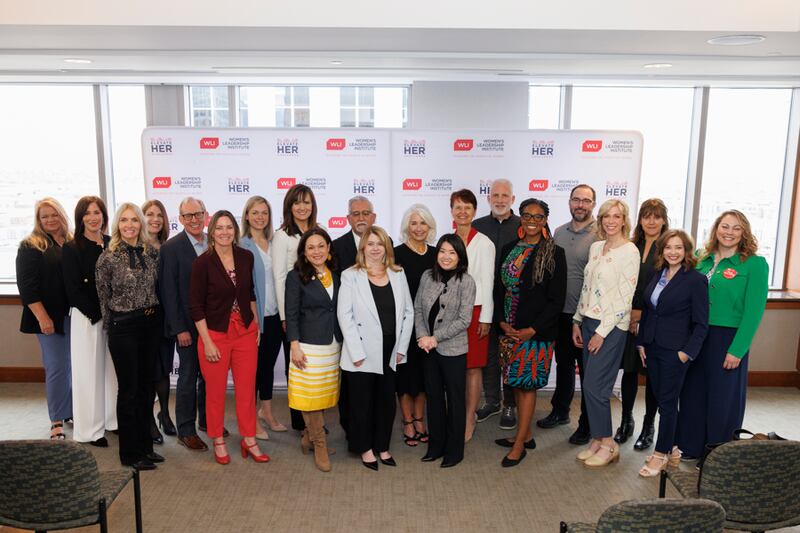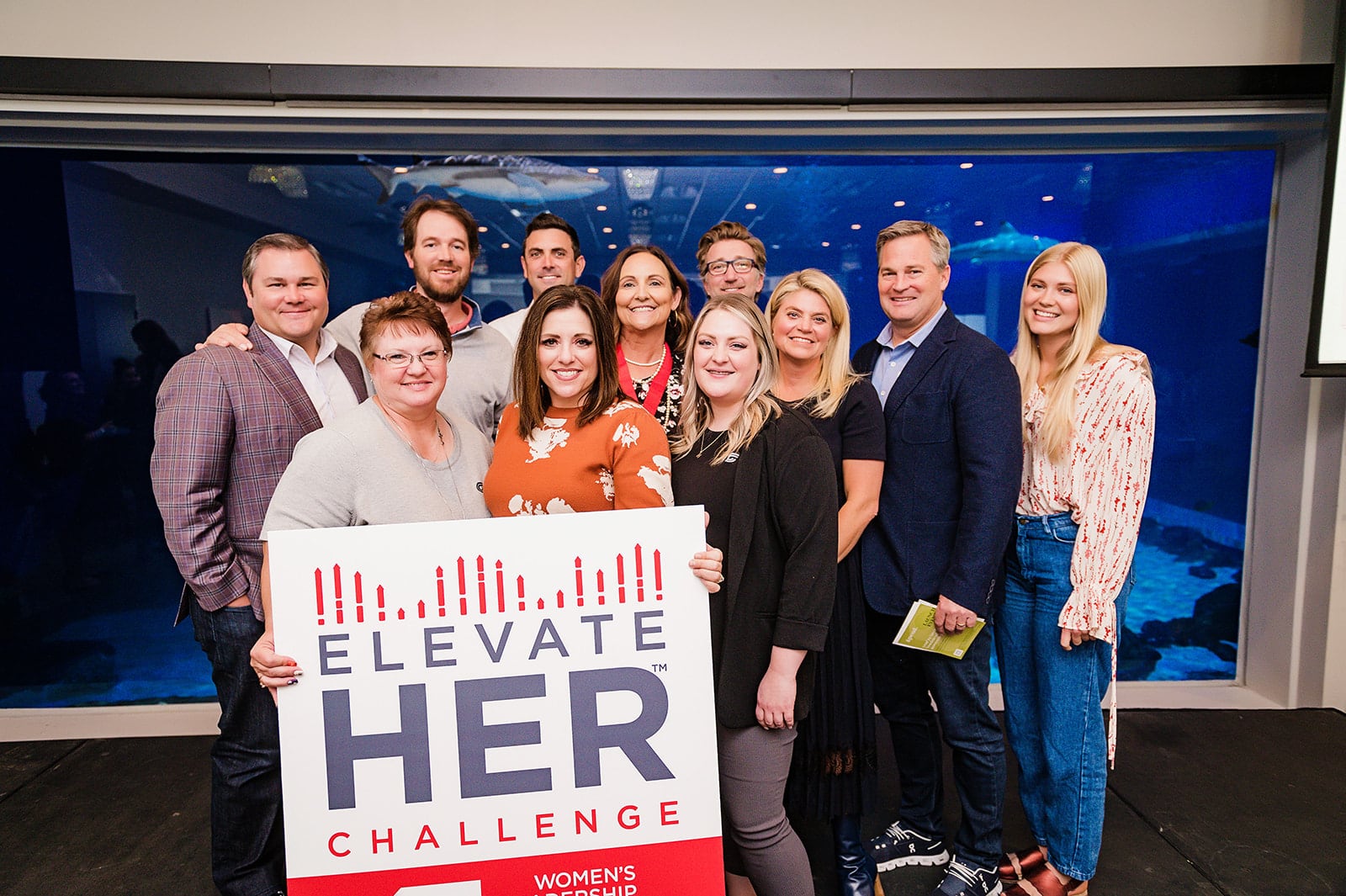This story appears in the July issue of Utah Business. Subscribe.
During the COVID-19 pandemic, workers across the United States — mostly women and parents — left their jobs at an unprecedented level. According to a report from the Utah Women and Leadership Project, 15.9 percent of Utah women withdrew from the workforce in some capacity during the pandemic, and 2.4 percent left entirely.
When Caroline Johnson had her first child in 2020, the parental benefits at her company, CHG Healthcare, were not ideal. The new mother — CHG’s manager of enterprise client solutions — had to go through a third party for short-term disability that only paid about 80 percent of her regular salary inconsistently.
“It’s stressful, not only bringing a child into this world but also worrying about getting paid. We don’t have the luxury our male counterparts do to go back when we want to because we’re still dealing with healing,” Johnson says.
When Kerry Norman, EVP of operations at CHG, and other leaders saw the number of women resigning in 2021 and 2022, “it really became apparent that we needed to lean in on family-friendly policies to help both men and women and try to retain parents.”
CHG is one of many local companies that have taken the ElevateHER challenge from Utah’s Women’s Leadership Institute (WLI), an organization that supports women in business. During the challenge, WLI worked with CHG leaders to create inclusive policies that provide a positive impact.
CHG began offering 12 weeks of fully paid parental leave regardless of gender, along with a slow transition when returning to work. It also added fertility, adoption and surrogacy benefits, as well as a dependent care FSA with 100 percent match for the first $2,500. CHG allows remote work and flexible hours, helping parents better meet their kids’ needs.
By the time Johnson had her second child, the new changes had eliminated much of the stress she felt with her first, allowing her to focus fully on her family.

Better for business
CHG now has a 95 percent retention rate for mothers returning to work after childbirth. Norman believes the new policies are responsible for the near-perfect retention rate.
“Out of 171 women who have had babies, 159 came back. An average company would have only kept 90,” she says. “That’s 62 more potential future leaders and $2-2.5 million saved. And we saved 10 times that in keeping talent and clients. It’s not just the right thing to do; it does impact your bottom line.”
Along with CHG, Ken Garff Automotive and Zions Bank have also saved millions of dollars a year in employee retention through the ElevateHER challenge. WLI helped Ken Garff double retention rates for women in sales and increase promotions for women in the company by 300 percent. WLI also worked with Zions Bank to develop inclusive policies, including annual tests for pay gaps.
A. Scott Anderson, former CEO of Zions Bank, says, “The principles that [Patricia Jones Horton] and the Women’s Leadership Institute teach pay dividends, create value and create an inclusive economy.”

Better for the employee
When Johnson saw the policies CHG adopted to benefit people like her, it made her want to work even harder. The policies make her feel like she doesn’t need to sacrifice her connection with her family for professional development.
“CHG values putting people first, and they don’t just say it — they actually live it. You feel that here at the company. It has kept me here and motivates me to come back every day,” she says.
Norman explains that this engagement and loyalty are exactly why the company tries to take care of its employees both in and out of work.
“When people are bringing their best selves and their best skills to work, over time, they create a really good connection to their teams, to their leaders and, ultimately, to the purpose of our company,” she says. “And the people who really believe in our mission make a difference in the lives of our customers and have a higher level of engagement, pride and compassion.”
WLI CEO Patricia Jones Horton shares that when she was younger, the employer was king, but now, “the roles have flipped.”
“If companies don’t provide intentional efforts to make the workplace culture a place where people feel like they belong and are wanted and valued, they’re not going to stay,” she says. “The emerging generation is expecting that belonging. I think it’s a good thing.”
Better for the community
Johnson believes that if Utah businesses followed the lead of the other local companies that have taken the ElevateHER challenge, life and community in Utah would be much better.
“Family is really important in Utah. These policies allow women to continue to support families and feel supported in the work environment. If more companies did this, they wouldn’t be missing out on so many brilliant minds and talented people,” she says.
Even though WalletHub has ranked Utah last in women’s equality for the past nine years, WLI has already worked to improve things for women in business at a state level.
Gov. Spencer Cox used the ElevateHER challenge to create and implement policies for state government workers, including family leave, flexible work options and identifying pay disparity. Lt. Gov. Deidre Henderson’s Return Utah program has provided a path for women who have left the workforce to return.
“I do believe there’s been great progress [in the state],” Norman says. “In 10 years, when we’re hopefully hosting the Olympics, I dream that we will be seen as a state that is no longer at the bottom of that list for women’s equality.”


